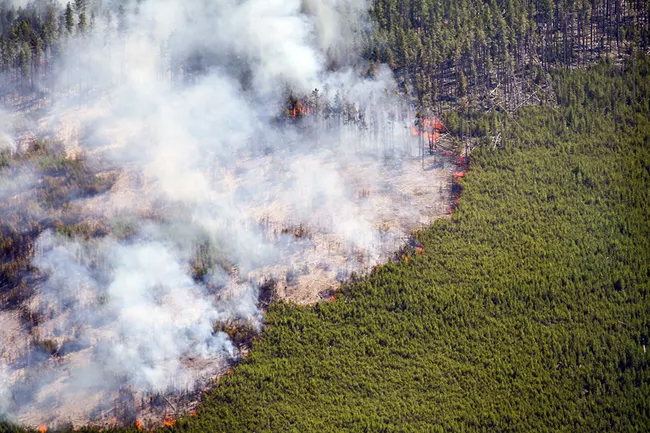
Her uncle, a brother to the mother she had lost while in high school, had made good money for the family fighting wildfires all over the West. He had the same warrior spirit of his own uncles and father who’d gone to the big war. When the family told stories each winter, he told of battling tall flames licking through stands of lodgepole pine that had never been cut by the settlers. He’d had to hike miles up and down through steep terrain to get to these places. There weren’t any roads there at all. It was great, he told them, his face shining. Fighting the fire to protect that forest was wonderful, because the forest itself was wonderful. It was like the ones in the old days, that the warrior grandfathers had told them about. He was glad to protect these places.
But as time went by, he grew troubled. He went more and more often to these forests as fires broke out in them more frequently. And he saw that now they were changing the same way the forests of their own land had changed. Companies were cutting roads into the flanks of the mountains so they could cut down and haul out the burned trees to sell the lumber for money. The more roads that were cut, the more trees that were harvested, the more fires that broke out. He didn’t understand why those things were connected, but he could see that they were. Her uncle shook his head as he told them each winter of the changes he had seen that year. And then one day he came home and he said he wasn’t going out on the fire line anymore again, ever. He put his heavy firefighter boots in the mud room closet and never took them out again.
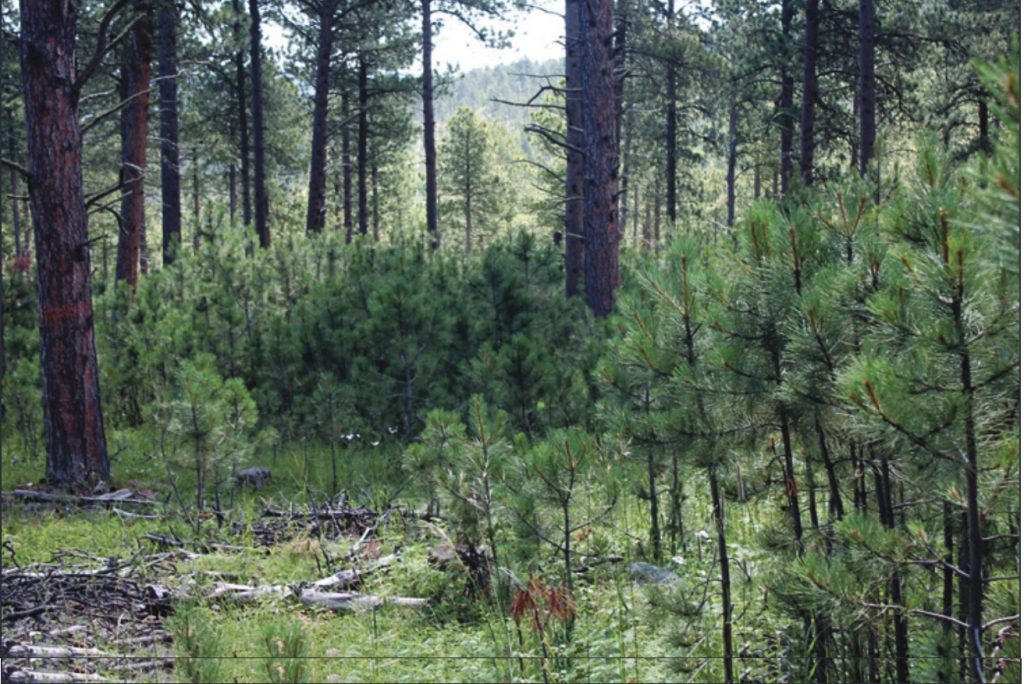
The old grandmother’s uncle had told the whole family he’d met an Elder who’d been able to explain the things he’d seen. He felt awful, he told his family, that somehow his own family had forgotten it. But the problem was that settlers saw fire as something unnatural and evil, something that had to be stopped. He had to admit, he had seen it that way too, when it was eating up the ancient lodgepole pine trees in places very far from a road. But the Elder had reminded him that fire is a Relative, like the trees and stones and waters, not an enemy. For centuries, fire had burned through the grass on the forest floor every few decades. It had burned between trees whose lowermost branches were too high off the ground to catch fire from the flames in the grass far below. And it had burned brush and saplings among the grass too. The Elder had opened her uncle’s eyes to the thick cover of saplings and brushy plants that filled the space between the big trees even then, when she was still just a girl. He had pointed out that flames could not have eaten the magnificent lodgepole pines if there hadn’t been such sapling and brush to serve as kindling. Stopping the fires meant that even more of these plants would grow, making fires more likely — and more likely to have flames that could reach into the big trees and set them on fire. “They never used to burn that way,” the Elder had told him. “Those old trees would get black scars on their trunks sometimes — I know you’ve seen them, the places down low where the bark has been burnt off at some point — but the branches didn’t catch fire and the trees stood there while the forest floor all around them got cleaned up by the fire.”
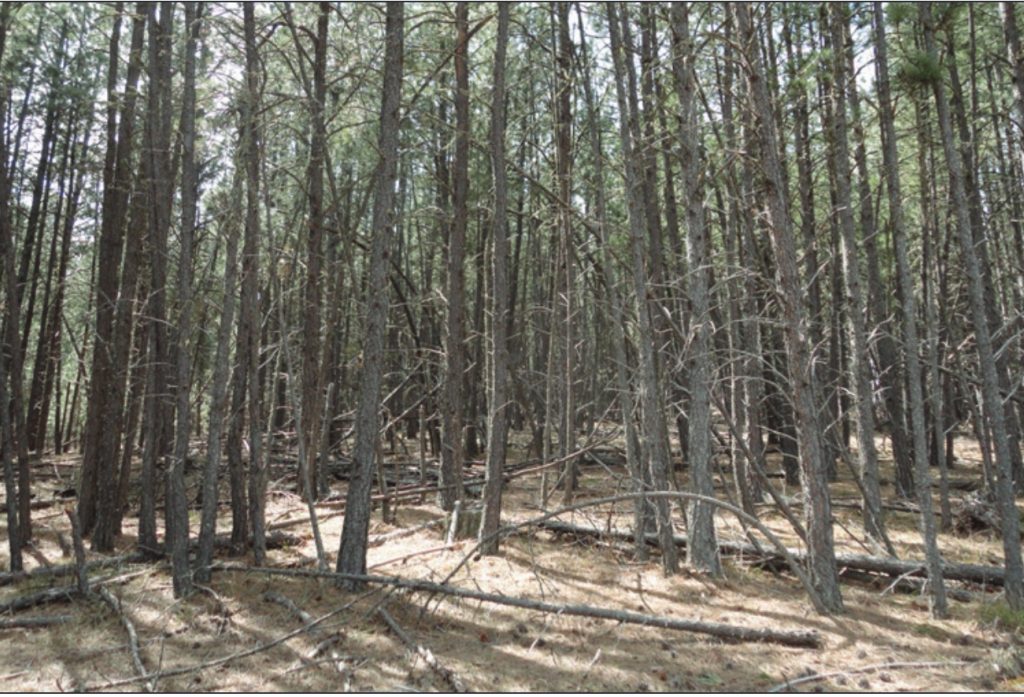
The old grandmother’s uncle had lowered his face when he finished explaining what he’d seen and understood. He felt sorry that he’d been part of putting out the fires, and made things worse by accident. As a girl, she’d felt shock when she realized the drops of water she saw falling into the dust at his feet were tears this brave uncle was shedding over the forests he loved so much. Now that he understood what he was seeing, he said, he realized things were in a terrible state everywhere. “What will we do?” he had said, his face in his hands. “How can this ever be healed?”
Uncle had never fought a fire again. But other people had. When lightning set fire to an old snag of fallen pines in their valley one hot July night, the volunteer fire department men had roared out on the dirt road, bumped in as close as they could get to the flames, pulled out their shovels and hoes and axes, and gotten right to work on stopping it. Her family had stood in silence at the bottom of the slope, watching the busy activity. “We got it! Your homes are safe!” the fire chief had called merrily as they left afterwards. Their faces were shiny with smudges of black smoke. They were sweaty and tired, but proud they had done a good thing. The old grandmother’s uncle had been dead for three years by then, and she was glad. He had been a warrior until his last breath and she wasn’t at all sure what he’d have done when he saw the firefighters pull out the axes and boots he himself had used and come to hate.
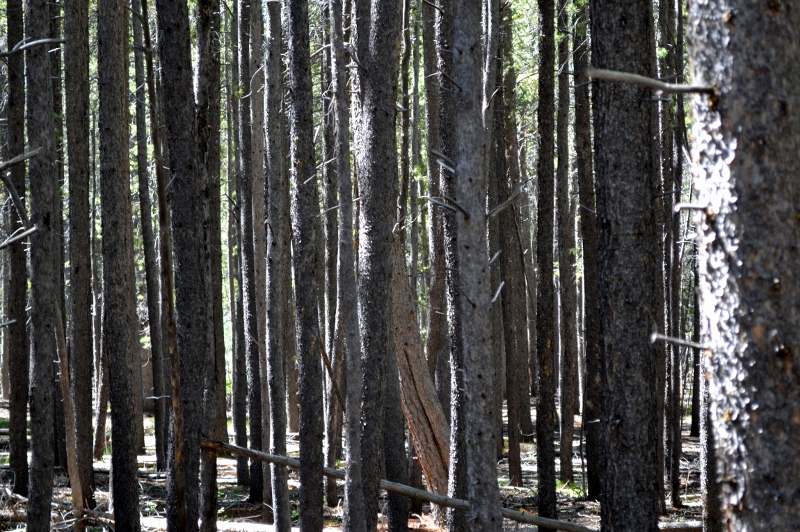
All around, on every hill and in every valley, the world continued to change. The saplings grew up ever more thickly, the grass in the meadows was grazed and mowed into hay, and slowly the forest of saplings moved off the slopes and advanced in a dark tide across the valley floors. Newcomers bought an acre or five acres or ten acres on a hilltop and built a new house among the pines. She sometimes caught sight of them sitting on a deck in the morning on her way to town for groceries, drinking coffee and watching the birds. She couldn’t blame them. They were in a lovely place. But she saw the thickets of saplings like a flood lapping up against their house foundations, and she worried. Her uncle’s words rang in her head then: “How could this ever be healed?” Maybe they could cut the saplings on their small acreage — but what about all the many acres to every side? Would a fire roaring through the thickened forest for miles screech to a halt simply because it came to a place where the saplings and small trees had been removed? The biggest trees were still only a fraction of the size the giant trees had been in her own grandfather’s boyhood. Their lowermost branches were well within reach of hungry flames. And if you cut all those low branches off, and cut down all the saplings, then what would you do with it all? If you did that on all these hills, in every direction, and on the great mountain towering high above them all like a mother, what would you do with the piles and piles of wood too small for a lumber yard to mill?
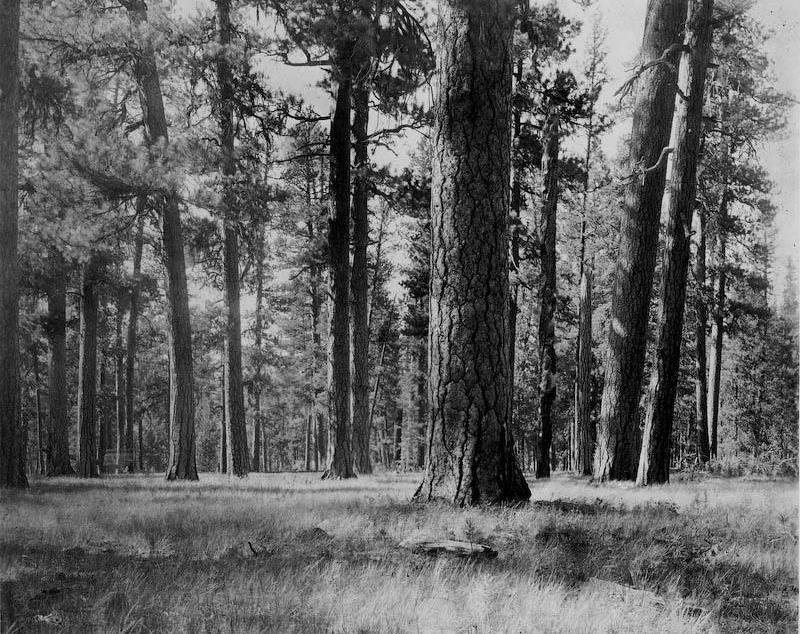
It was impossible to remedy, she thought. Her uncle had been right. Once the natural situation had been disturbed, things had gone increasingly out of balance. And the settlers knew it too now. At least some of them did. One of her granddaughters who was in college — smart girl, that one!, thought the old grandmother with pride — that granddaughter had told her about a professor who had said many of the same things in a class she was taking. The Knowledge the Elders carried about the plants and animals and waters and winds was called ecology now by settler people. The professor of ecology had said that the crowded saplings even took too much water out of the ground, which made all the trees more dry than they would normally be. So when fire came, they burned hot and fast like a Christmas tree that’s been too long inside a warm house.
